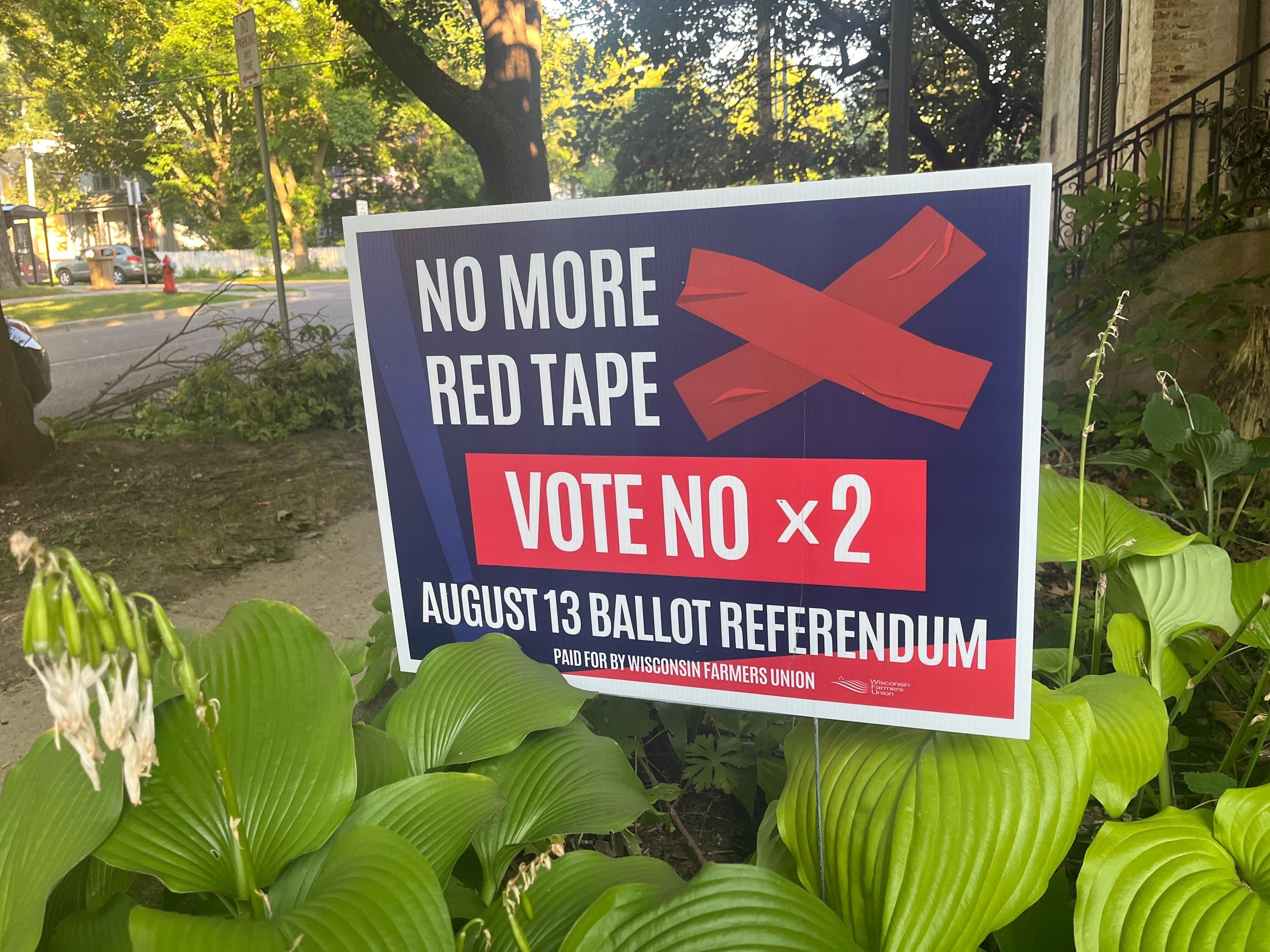Wisconsin’s Supreme Court has upheld Marsy’s Law, a statewide constitutional amendment approved by voters in 2020 that outlines a list of rights for crime victims.
A criminal justice reform advocacy group called the Wisconsin Justice Initiative sued over the changes, arguing the amendment’s impact wasn’t fully described to voters on ballots.
The Marsy’s Law ballot measure called for amending the state’s Constitution to add additional rights for crime victims while requiring that “the rights of crime victims be protected with equal force to the protections afforded the accused” and stating that crime victims can enforce their rights in courts.
News with a little more humanity
WPR’s “Wisconsin Today” newsletter keeps you connected to the state you love without feeling overwhelmed. No paywall. No agenda. No corporate filter.
The description of those rights spelled out in the Constitution is much longer at 16 in all, according to an analysis by the nonpartisan Legislative Reference Bureau. The list includes right to opt out of criminal depositions requested by defense attorneys, the right to seal records that could be used to locate victims, the right to be heard at plea and parole hearings, the right to request updates on an investigation or a case and the right to full court-ordered compensation known as restitution.
“Victim” is also defined broadly in the amendment to include the family of the person who was targeted by a crime.
Civil liberties advocates have argued that those changes may appear reasonable but in practice take away from the right to fair treatment for people accused of crimes. In 2020, Dane County Judge Frank Remington sided with the Wisconsin Justice Initiative, concluding that the ballot language should have been broken up into multiple questions to better inform voters of the amendment’s impact on the accused. But Remington allowed Marsy’s Law to remain in effect pending appeal.
In 2021, a Wisconsin appeals court asked the state’s highest court to take up the case. In a 6-1 ruling released Tuesday, the Wisconsin Supreme Court overturned the Dane County court’s decision and determined that the amendment’s adoption had followed a process that’s outlined in the Wisconsin Constitution.
Two consecutive sessions of the state Legislature passed the proposed amendment before sending it to voters, which the court ruled met the requirements of the state Constitution. As conservative swing Justice Brian Hagedorn wrote on behalf of the court’s majority, it is not necessary for the wording of such measures to be broken up into separate ballot questions to represent “every essential” element of the proposal.
“Examining the original meaning of the Wisconsin Constitution, we discern no such requirement, and therefore we decline the invitation to fashion a new, exacting constitutional standard,” Tuesday’s opinion said.
In an interview after the ruling was published, Wisconsin Justice Initiative Executive Director Margo Kirchner told Wisconsin Public Radio she worries the decision will give legislators “unfettered” leeway to put confusing proposals before the electorate.
“It’s voter beware now for constitutional ballot questions,” she said. “The decision by the majority has given the Legislature permission to frame and word referendum questions that leave out important information for voters (and) that divert attention away from parts of the amendment voters may find objectionable.”
In his opinion, Hagedorn advanced an originalist interpretation for understanding Wisconsin’s Constitution as it was initially written. He wrote that the Marsy’s Law ballot proposal met a constitutional standard because the language was not “fundamentally counterfactual” or false.
That’s a fairly lenient standard for future constitutional amendments to clear, said Dustin Brown, an attorney with the State Democracy Research Initiative at the University of Wisconsin Law School.
“As long as (the ballot language) doesn’t say the opposite of what the amendment accomplishes, then it’s sufficient under this standard,” Brown said. “This decision gives the Legislature very broad authority to present constitutional amendments to the people, and it very much limits the degree of oversight that courts can exercise over that process.”
Marsy’s Law gets its name from Marsalee Nicholas, a California college student who was murdered by her ex-boyfriend in 1983. Nicholas’ brother has lobbied to enact similar laws across the country, and versions of Marsy’s Law have been adopted by voters in at least a dozen states.
The Wisconsin Supreme Court cited Marsy’s Law in a separate opinion that was also released Tuesday. That ruling overturns precedent that gave a criminal defendant the ability to have a judge review an alleged victim’s privately held health records.
Editor’s note: This story has been updated to reflect that Marsy’s Law would let crime victims opt out of criminal depositions.
Wisconsin Public Radio, © Copyright 2026, Board of Regents of the University of Wisconsin System and Wisconsin Educational Communications Board.





